Behind the scenes: A day in the life as an Australian Border Force officer
There’s a lot more to a day on the job with Australian Border Force than just looking for banned fruit at the airport.
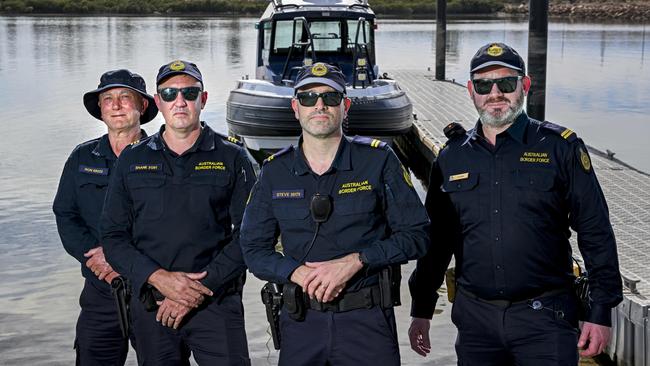
Police & Courts
Don't miss out on the headlines from Police & Courts. Followed categories will be added to My News.
From huge cocaine busts to exposing sickening pedophiles, no two days are the same for Australia’s elite Border Force officers.
With thousands of people coming in and out of Australia every day, the crack team of officers are on constant alert for people breaking the law when crossing the border.
Passengers and cargo on boats and planes are regularly searched in order to protect the country’s vast borders, but what actually happens behind the closed doors of Australia’s ‘frontline’ force?
The Australian Border Force took The Advertiser behind the scenes, offering a rare glimpse into how they keep the South Australian community safe.
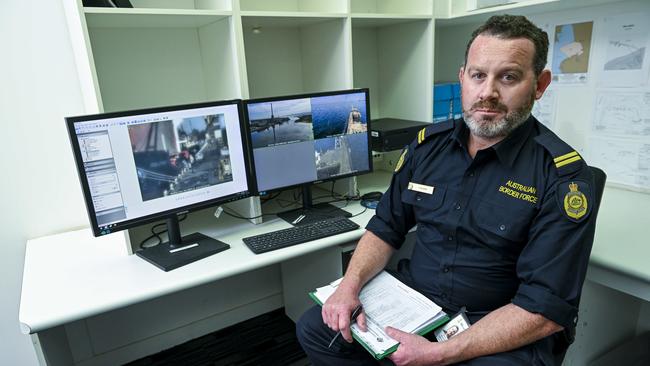
Australia’s eyes on the air and in the water
Senior Border Force officer Tim is often the first Australian face seen by international crews when vessels arrive at Port Pirie in South Australia’s Spencer Gulf.
After starting his day in the ABF office, Tim sees an internationally registered ship has arrived to deliver cargo – but this ship has a rocky past.
“A couple of years ago, more than 20kg of cocaine was found in this vessel,” Tim told The Advertiser.
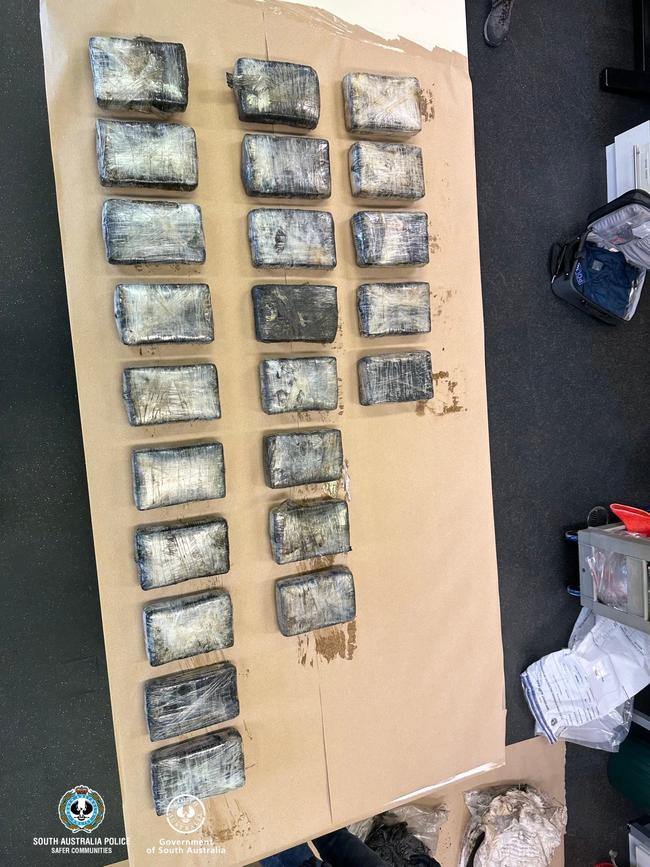
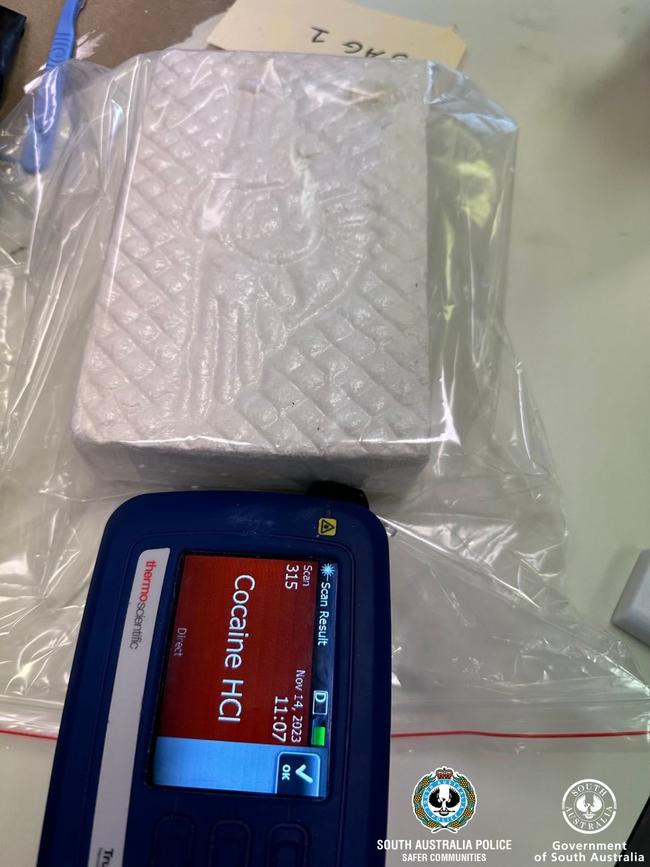
“It’s our job, as the Border Force, to regularly inspect international ships like this. All the goods coming on and off the vessel need to be cleared by the ABF.”
While the 23kg was a “significant” drug bust, it’s nothing compared to another major find just a year prior.
In 2022, officers found the biggest cocaine haul in South Australian history, taking the $250m worth, 416kg of the illicit substance out of the Australian market.
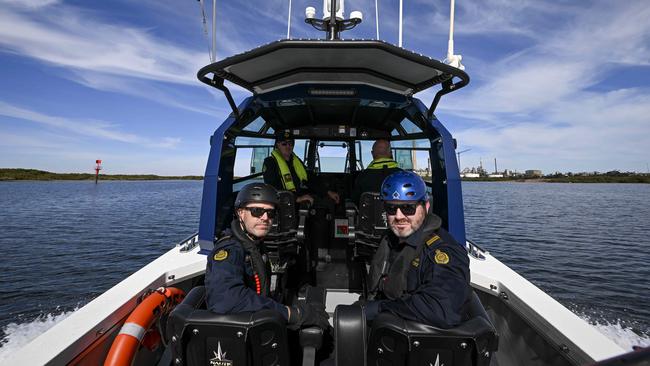
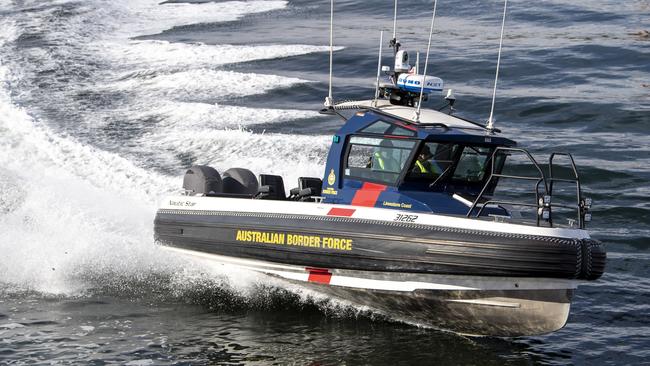
After viewing the vessel through security cameras online, Tim heads out to meet the patrol boat crew – manned by other senior officers Ron, Steve and Shane.
Designed and made proudly in South Australia, the Force’s Nordic Star boat is quick and agile, in order to keep up with vessels who aren’t keen to be caught.
“They’re tactical, quick and safe – exactly what we need them to be. And they’re locally made,” Officer Shane said.
“We keep a keen eye on the hulls of the boats. Crime groups are getting better at hiding their illegal cargo and sometimes the goods are in welded compartments hidden under the hull. They can also be magnetic.”
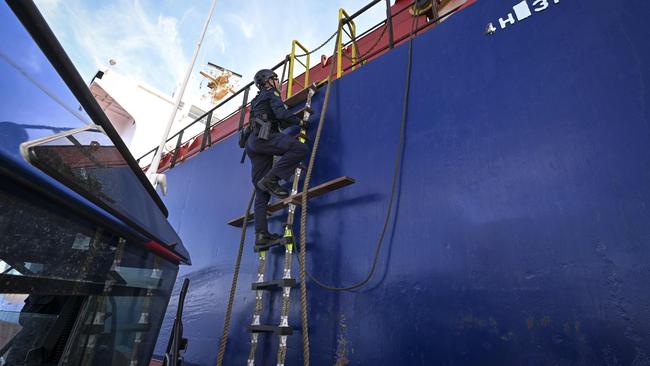
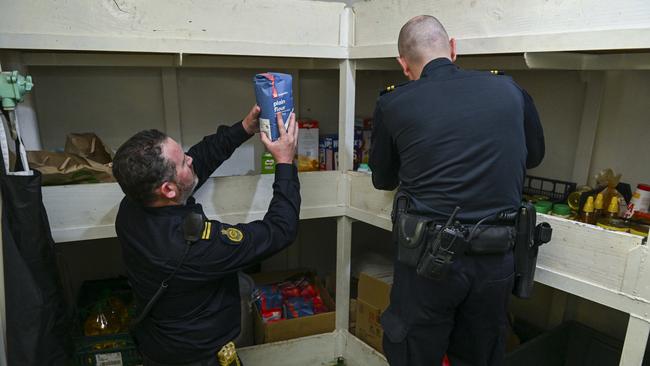
When the ABF boat approaches, the cargo vessel is contacted by radio and told officers will soon be on board for a search.
A swift rope ladder climb later, and the search begins.
“We’re here looking for any illegal goods – narcotics, firearms, illegal shipments like vapes,” Officer Steve said.
“You even see things like wildlife. If there’s any item at risk to the Australian community, we need to know about it.”
An all clear to the captain, and the Border crew are back out on the boat, ready to patrol the water for the rest of the day.
An officer’s intuition
Superintendent Jody Griswood has worked for the Force since its creation in 2015, and says despite some of the horrors of the job, she wouldn’t want to work anywhere else.
“Growing up, my mum said I should be a customs officer,” Superintendent Griswood told The Advertiser.
“I wanted to be a vet, but I used to spend so much time hunting for things and gathering information. I guess mum was right in the end.”
Her colleague, Inspector Mel Duncan, works in the Force’s cargo division, overseeing searches and seizures every day.
“You have to deal with some really confronting things, like child exploitation material and the likes,” Inspector Duncan said.
“We conducted a passenger search recently where we looked at someone’s phone, and there were some awful images and text messages. It ended up with some children in the Philippines being rescued.
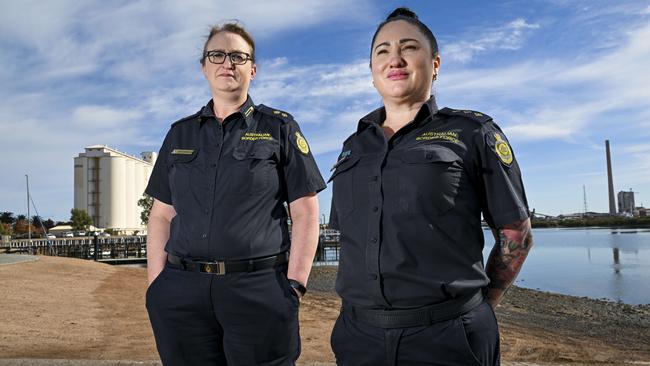
“When he came in, we didn’t really have any specific intel, but that was just some good officer targeting – an officer who trusted their instinct.
“It really starts with us. We detect it, and then we work with others who investigate and prosecute. We’re really the frontline.”
Andrew Steele, 65, was arrested by a joint SA Police/AFP anti child exploitation team after he was stopped at the border in May last year.
He has since pleaded guilty to one count of persistently sexually abusing a child outside Australia, two counts of engaging with a child outside of Australia and using a carriage service to disseminate child exploitation material.
Steele further pleaded guilty to one count each of possessing and distributing child exploitation material, and one count of accessing that material online.
He will face court again later this month.
“To get an arrest, to get someone before the courts is the best outcome. That’s what we live for,” Superintendent Griswood said.
“It makes you want to keep doing your job, even though it’s not very pleasant, you want to find the next one and the next one.
“The rewards, in terms of finding something and helping the public and the community protection, that really drives us as officers.”
What we’re stopping at the border
“At the moment vapes and tobacco are really high on the list of things we see, but there’s a steady stream of narcotics,” Superintendent Griswood said.
“Cocaine is huge at the moment, and so is fentanyl. Ketamine is surprisingly on the rise too.
“Firearms and firearm parts are an interesting one. We see different parts come in at different times, because they think if they can dribble the parts in, they can put them together and make a whole firearm.
“We’ve also been seeing a lot of extremist material coming in.
“Child exploitation material really increased during the pandemic, which is a horrific thought. Recently there’s been a rise in cocaine too.”
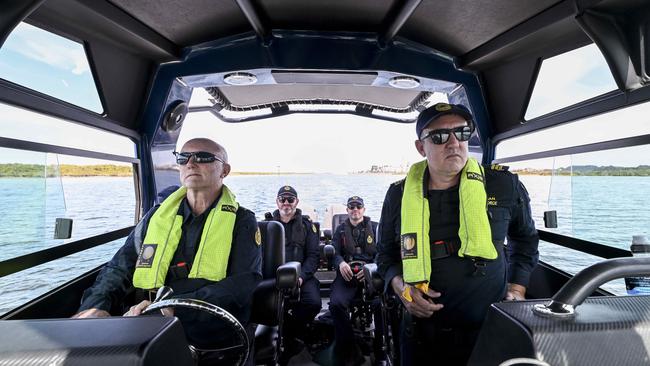
Superintendent Griswood said the illegal goods are coming in from all over the world.
“Basically, things like vapes come in from everywhere. That’s why it’s so important that we’re there hardening the border to make life as difficult for organised crime groups to get products in.
Inspector Duncan said Border Force officers have the right to search any incoming international shipment, with officers at times trusting their gut instincts when they feel like something isn’t right.
“Disruption and deterrence is the key. We can look at whatever we want whenever we want. We often rely on good officer intuition and then we go hunting.
Officer Shane said a big part of the job relies on tips from the community.
“Especially in regional areas, community members know what’s normal and what isn’t. We’ve had some big busts after getting tips from locals, and we need to keep building those regional connections to make sure people know we’re here to help, and we won’t stop protecting the border.”





